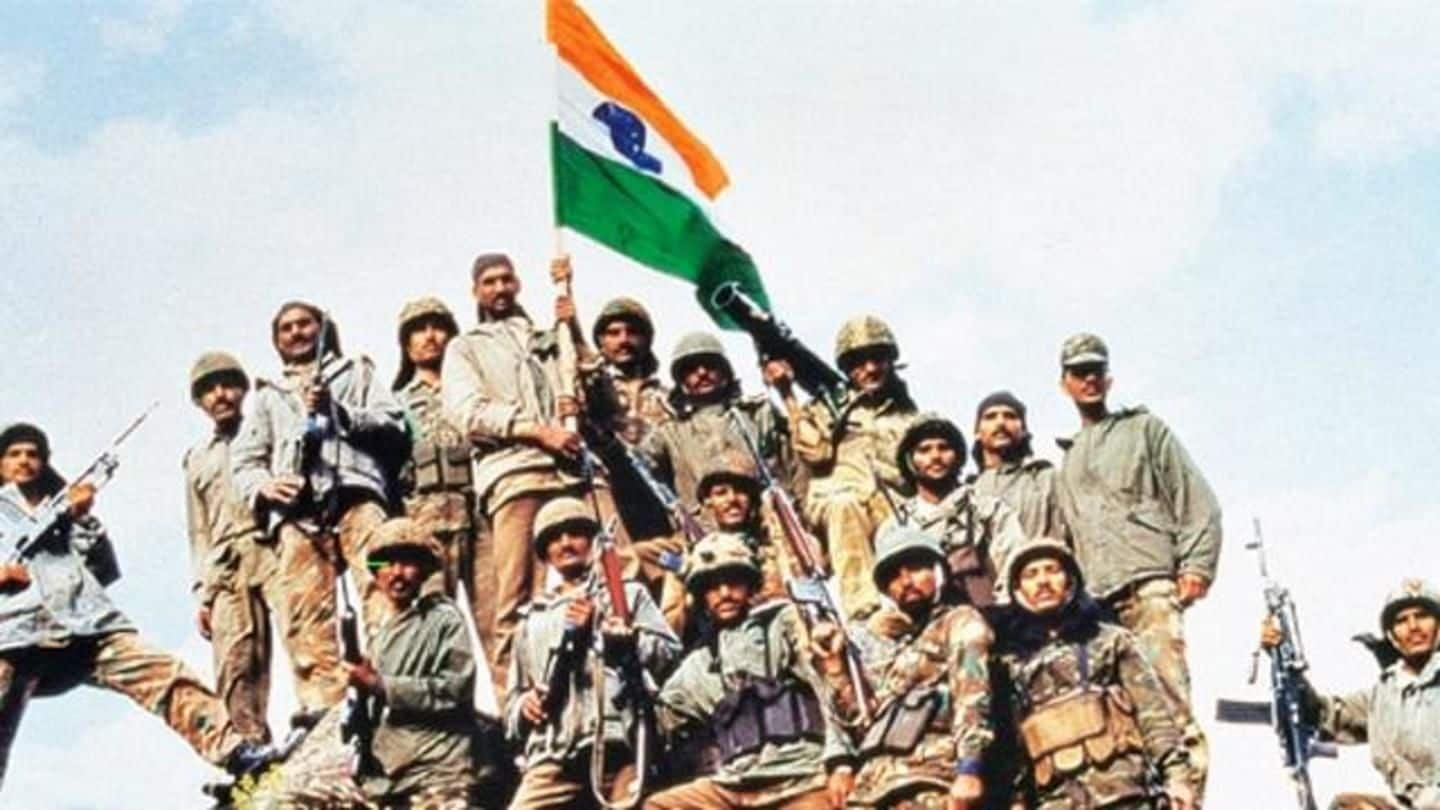
Kargil Vijay Diwas: The conflict, the victory and the lessons
What's the story
India's military victory against Pakistan in the Kargil conflict in 1999 is celebrated on July 26. PM Modi hailed the Indian military for its prowess and sacrifices on 'Kargil Vijay Diwas'. "On #KargilVijayDiwas, a grateful nation pays homage to all those who served the nation during Operation Vijay," Modi tweeted. Here's all you need to know about it.
Details
How did the Kargil conflict start?
The conflict took place from May to July 1999 in Jammu and Kashmir's mountainous Kargil district. It began after India discovered that Pakistani troops and terrorists had infiltrated into its territory. The infiltrators positioned themselves in key elevated positions in the region, giving them a strategic advantage. The Indian Army launched the daring 'Operation Vijay' to evict the Pakistani intruders.
Reasons
Why Pakistan deployed troops into Kargil?
General Pervez Musharraf, who was the then Pakistani army chief, is believed to have orchestrated the conflict without the then Pakistan PM Nawaz Sharif's knowledge. He wanted to sever the Ladakh-Kashmir link to make the Indian Army retreat from Siachen Glacier. It was supposedly aimed at bringing the Kashmir issue back in the international limelight and to revive fledgling militancy in J&K.
India's response
India responded with daring military operation
Operation Vijay witnessed widespread use of the army's artillery, especially the Bofors, which proved their mettle in pinning down the Pakistani intruders. Indian troops meanwhile braved bitter cold in inhospitable high altitudes to climb steep mountain sides to dislodge a well-entrenched enemy. India mobilized nearly 200,000 troops. The Indian Air Force launched Operation Safed Sagar to seek and destroy the enemy.
Victory
Operation ended when Vajpayee declared victory on July 26, 1999
On July 26, 1999, Indian PM Atal Bihar Vajpayee officially declared an end to Operation Vijay after the army successfully evicted the Pakistani intruders. The then US President Bill Clinton also reportedly pressurized Pakistan to withdraw from Kargil. The conflict left at least 500 Indian armed personnel dead while Pakistani media reported the deaths of over 3,000 Pakistani soldiers and terrorists.
Significance
Kargil conflict gave birth to martyrs and heroes
The Indian government awarded four Param Vir Chakras, including to martyrs like Captain Vikram Batra. The government also awarded nine Maha Vir Chakras, 53 Vir Chakras and other medals to India's heroes. The conflict was India's first televised war and is one of the few instances of a military confrontation between nuclear-armed states.
Lessons learnt?
Has India learned lessons from Kargil conflict?
Following the conflict, the Vajpayee government set up an inquiry to look into the intelligence failures that led to the Pakistani incursions and subsequent conflict. The high-powered Kargil Review Committee report studied the conflict and provided recommendations to ensure it isn't repeated. Yet two-decades since its release, the recommendations "avalanched under political one-upmanship, bureaucratic apathy, turf protection, diffused accountability," as expert Raghu Raman noted.